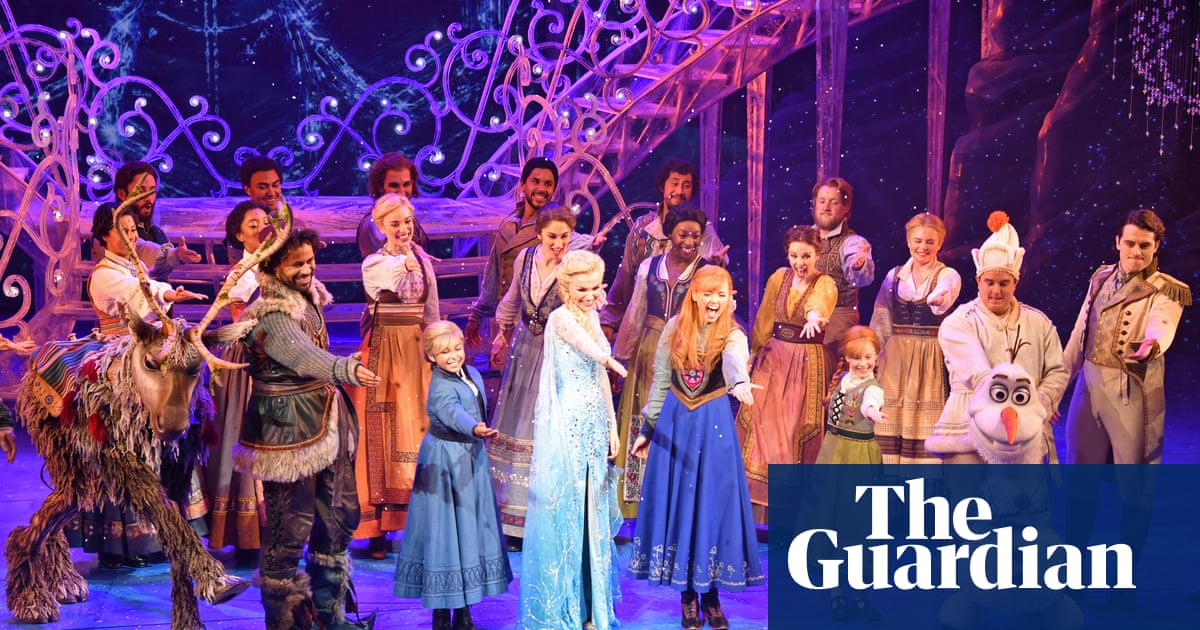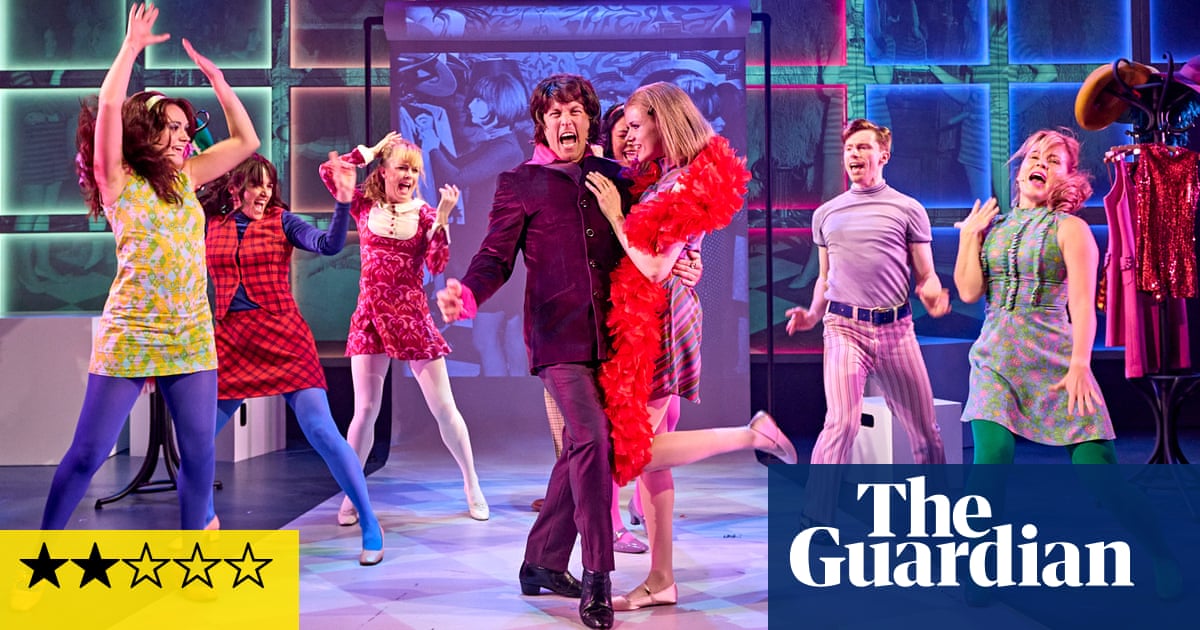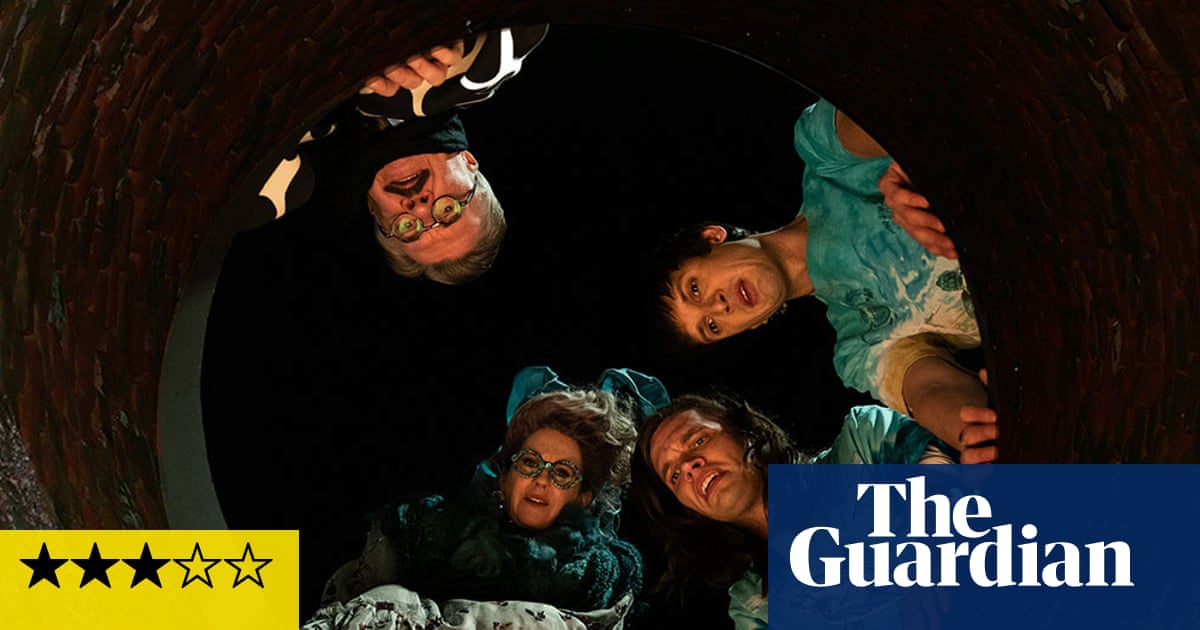
“You have to think big to be big,” declares Tracy Turnblad, the “pleasantly plump” teenager who brings racial integration to a TV dance show and marks a turning point for 1960s Baltimore – for bopping, beehived teenagers at least.
That dictum is just as applicable to this maelstrom of a musical, based on John Waters’ 1988 film. It begins small, with a single spotlight on Tracy (Lizzie Bea), but grows to become bigger, louder, dizzyingly over-the-top, all within minutes of its opening.
You wonder how the cast will sustain the demon energy and excess as it hurtles from one number to another, with Mark O’Donnell and Thomas Meehan’s book kept minimal. The production has an over-bright, caricatured aesthetic that feels garish at times and becomes wearing. Characters are just a little too flat, speaking in an adenoidal high-school squeak and Velma von Tussle (Rita Simons), intent on racial segregation, is a Disney villain. The show – literally – threatens to take off like a fizzing musical rocket in a scene featuring her skidding across the stage on a cloud of dry ice.
But then it reels back and recalibrates its energy to a different setting, no less turbo-charged but not so high-pitched. It becomes unstoppably joyous, placing its politics (on conventional femininity and on size, as well as race and protest) alongside its joy. This works better for its uplifting message on female self-worth, but the upbeat mood on racial unity strikes a more dissonant note. It captures the hope of the civil rights movement but also, depressingly, the stalled progress since, especially in light of the BLM protests last year.
All the elements are there, in bundles. Marc Shaiman’s sunny score (with lyrics by Shaiman and Scott Wittman) has instantly infectious songs such as Good Morning Baltimore and Welcome to the 60s. Jack O’Brien’s direction is full of verve, David Rockwell’s set design is psychedelic and splashy, Jerry Mitchell’s choreography high-octane.
There is no weak link in the performances either. Michael Ball’s mischievous Edna Turnblad bears shades of a pantomime dame, despite the American accent, particularly with Les Dennis as Wilbur, her husband. Dennis plays second fiddle to Ball and is perhaps overshadowed, but the pairing works and evokes romance, comedy and camp. Ball comes into his own during the mother-daughter song Mama, I’m a Big Girl Now and melts you with vulnerability and tenderness.
Jonny Amies plays school hunk Link Larkin as a smoky-eyed teen Elvis; Ashley Samuels, as Seaweed, is a pleasure to watch, musical trio the Dynamites (Holly Liburd, Mireia Mambo, Robyn Rose) have dynamite voices. But as far as the singing goes, Marisha Wallace steals the show as the indomitable Motormouth Maybelle. Her gospel song, I Know Where I’ve Been, is so show-stopping that it brings the audience to its feet. “We can’t get lazy when things get crazy,” she adds, speaking about the fight for integration and racial equality, which is still applicable today. We are left roused and breathless. The musical, if it ended here, would still be worth its ticket price.
The show weaves elements of gospel with cabaret, pantomime, musical hall comedy and classic West End show musicality. This runs its own risk of disharmony and entertainment overkill, but it unites those forms,excelling at them all.
Ball speaks a few emotional words amid the applause at the end: “We are the West End and we are back.” This show really does pronounce theatre open again.
At the Coliseum, London, until 29 September.












